David Cronenberg contemplates mortality in The Shrouds (2025)
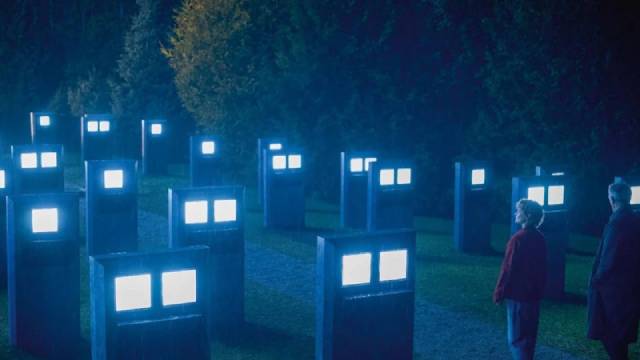
My first experience of David Cronenberg came before he had established himself as Canada’s most successful auteur, itself quite a feat as he has largely worked within the disreputable arena of gross-out horror. In fact, that encounter was before he’d even made his first commercial feature. It was the summer of 1973 and there was a series of science fiction movies being presented in the auditorium at the Manitoba Planetarium. And so one afternoon, I bought a ticket to Crimes of the Future (1970). It was fascinating in a genuinely unsettling way – Cronenberg, working with a minuscule budget, made excellent use of existing architecture to create a sense of an inhuman future which was populated by disturbing characters, images of disease and intimations of sexual perversion. The small theatre was packed as the film began (as for every screening in the series – Cronenberg’s film was preceded by Don Siegel’s Invasion of the Body Snatchers [1956] and followed by Alain Resnais’ Je t’aime, je t’aime [1968]), but very quickly people began to get up and leave, some with vocal expressions of disgust, and by the end I was one of only a dozen or so who had lasted through the hour-long feature. (I learned almost two decades later that my future close friends Dave Barber and Howard Curle were also there and had stuck it out to the end.)
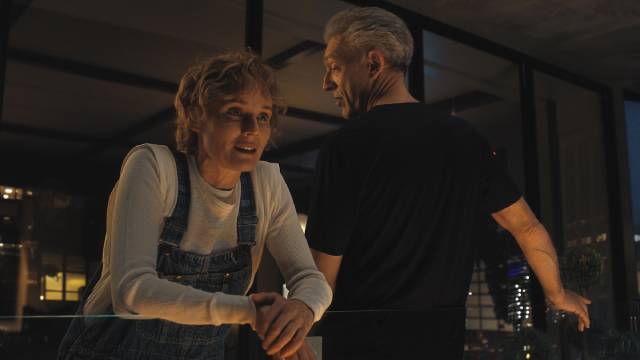
Although that experience was memorable, to say the least, it took me almost another decade before I began to appreciate Cronenberg. I saw Shivers (1975) in 1977, The Brood in 1979 and Scanners in 1981, but according to my notes I wasn’t impressed with any of them (it was much later that I managed to see Rabid [1977]). Then came Cronenberg’s first masterpiece, Videodrome (1983), and three years later his second masterpiece, The Fly (1986), and I began to reevaluate the earlier work, which has only seemed to get better with each subsequent viewing[1]. It was with those two films (and to a lesser degree his work-for-hire The Dead Zone [1983]) that I became an admirer and fan (and that now includes Crimes of the Future and its experimental companion Stereo [1969]). He has grown steadily as a craftsman since the early ’80s, his work seemingly effortless since The Fly, a natural filmmaker whose image-making embodies his themes in ways which are endlessly surprising and yet seemingly inevitable.
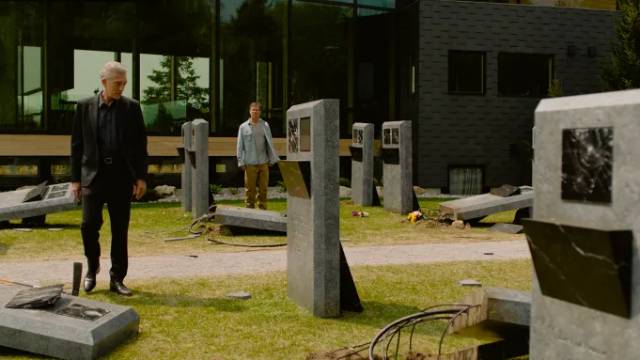
Despite the pleasures which arise from his craft, I was a little disappointed with his apparent turn towards the mainstream in the ’00s as he settled into directing other people’s scripts – A History of Violence (Josh Olson, 2005), Eastern Promises (Steven Knight, 2007), A Dangerous Method (Christopher Hampton, 2011), Maps to the Stars (Bruce Wagner, 2014); the most interesting film from this period was Cronenberg’s own adaptation of Don DeLillo’s novel Cosmopolis (2012). But with Crimes of the Future (2022), as he approached eighty, Cronenberg returned to his roots – emphatically signalled by reusing that title from his early experimental days – with an original script which revisited and reconsidered many of his own personal themes, particularly the unsettling fragility and mutability of “the flesh”. But this work was more contemplative than confrontational, and infused with a degree of humour which was missing from his early work. The shock and horror of those earlier films was now tempered with an air of melancholy perhaps rooted in the filmmaker’s own very personal sense of mortality – it had been preceded by a short film, co-directed with his daughter Caitlin, bluntly titled The Death of David Cronenberg (2021), in which he contemplates with curiosity and a kind of wonder his own dead body.

This sense of personal mortality is central to his latest film, The Shrouds (2024), which, while seeming strangely calm and relaxed about the inevitability of death, becomes top-heavy with multiple unresolved narrative threads and finally dissolves into a non-ending which may have something to do with the project starting out as a proposed series for Netflix which was rejected after only two episodes had been written. Just as it seems to be heading into another narrative level promising new revelations about all those potential plot strands, the end credits suddenly roll, leaving the viewer hanging. And yet, as unsatisfying as this is, everything which has led to that point is thematically absorbing and thoroughly entertaining.
The shadow of death hangs over the film – Cronenberg is quite open about the impetus for the film coming from his wife’s death from cancer, which is addressed directly and in unsettling detail. To emphasize this personal dimension, protagonist Karsh Relikh (Vincent Cassel) has been made up to look very much like Cronenberg himself. Relikh is mired in his grief over the painful death of his wife Becca (Diane Kruger) to such a degree that he has developed a high-tech cemetery in which the bodies of the dead are buried in shrouds which transmit 3D images of their decay to screens embedded in the headstones. The bereaved use an encrypted app to obtain exclusive private views of their loved ones returning to dust. Unable to let go of his attachment to his wife’s body, Relikh is unable to move on – a blind date with a potential new partner ends with him showing the woman the decaying body and talking about how much that body has meant to him, and still does … definitely not a strategy to ignite a new relationship.
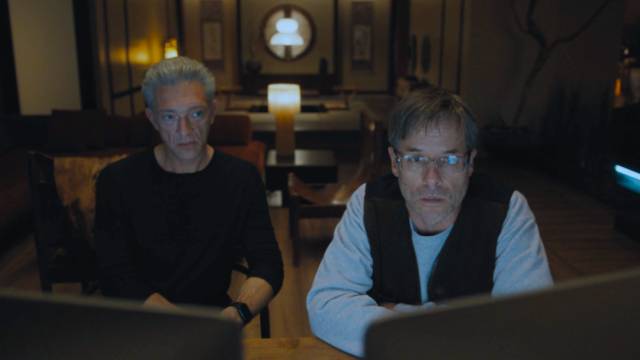
Things begin to grow complicated when someone smashes some of the headstones and apparently taps into the video feeds – and locks Relikh out of the app through which he maintains his contact with his dead wife. His eccentric tech guy, Maury Entrekin (Guy Pearce), gets to work on cracking the new encryption, which opens up a number of possible conspiracies – perhaps the Chinese, who have helped develop the shroud technology, are attempting to create a global network using the shrouds as a complex, AI-driven surveillance system; or perhaps the Russian mafia are involved somehow…

Meanwhile, Relikh is drawn to his sister-in-law Terry (Kruger again), who was married to Maury, who persistently pursues her and threatens suicide if she won’t go back to him. Then there’s Hunny, Relikh’s AI assistant, created by Maury (and voiced by Kruger), which becomes increasingly flirtatious and is eventually revealed to be spying on Relikh for Maury, who may or may not be deeply involved in the murky plot surrounding the shrouds and Relikh’s proposed network of high-tech cemeteries around the world. In the midst of increasing paranoia – and disturbing “dreams” in which Becca’s body is gradually dismantled by surgeons, one of whom Relikh comes to suspect was her lover – Relikh rediscovers his own libido; not only does he become sexually involved with Terry, he ends up in bed with Soo-Min Szabo (Sandrine Holt), the blind wife of shady Hungarian billionaire Karoly Szabo (Vieslaz Krystyan), who is terminally ill and wants to fully fund one of Relikh’s cemeteries in Hungary if he can be assured that the system is genuinely secure.
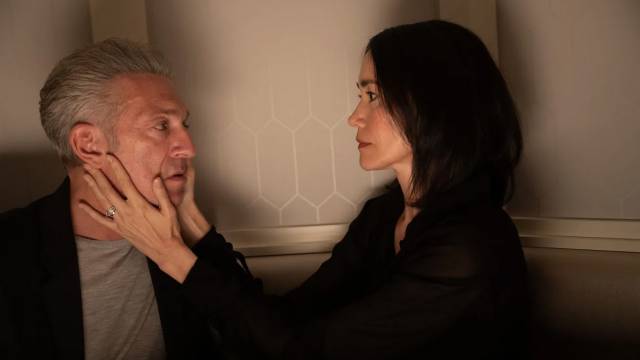
With all these personal and business/political threads in play, Relikh no longer has time to indulge his grief. Boarding a private jet with Soo-Min, he heads for Hungary hoping to conceal the intrigue surrounding the shroud technology in order to take advantage of Szabo’s investment … and as the plane disappears, the credits suddenly start to roll. There’s no indication that Cronenberg intends to continue the story, so we’re left with a lot of fascinating fragments revolving around the theme of grief and a very complicated web of half-glimpsed, seemingly contradictory plot elements whose opaqueness has forced Relikh to move barely consciously out of the stasis he had wilfully mired himself in.
A great deal of the film consists of conversation, with Relikh in particular talking himself through his feelings in intellectual terms which actually serve to obfuscate the clarity he seems to be seeking. As an exploration of the power of grief to trap us in self-destructive emotional cycles, The Shrouds is potent; but it can’t seem to find a clear way to embody this theme in a coherent story – something Cronenberg has previously always managed to do. Perhaps this time it’s too personal; or perhaps his strategy is deliberate, a way of reflecting how grief distorts and confuses perception and can finally only be overcome by the messy contingency of life as it moves on regardless of our emotional state.
____________________________________
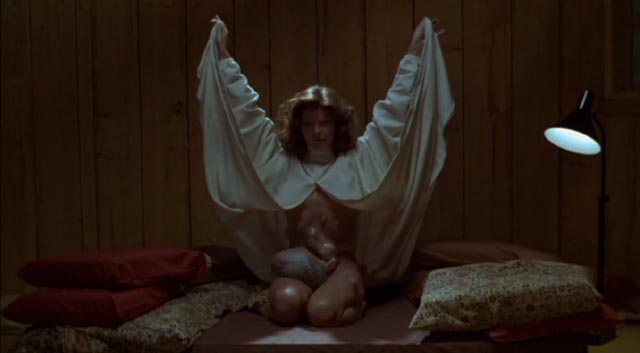
(1.) By chance rather than design, Second Sight’s new 4K restorations of The Brood and Scanners arrived shortly before I went to see The Shrouds – and I watched them both back-to-back the evening after I took in the matinee. It had been about a decade since I last saw either of them (on Criterion Blu-rays) and I enjoyed them both, perhaps more than on any previous viewing. Both look excellent, though they still show their low-budget origins with a little roughness around the edges. I’d actually forgotten quite a few plot details in Scanners, so there was a degree of freshness, though Stephen Lack’s dull performance is still an issue. He’s greatly overshadowed by Patrick McGoohan as one of Cronenberg’s deeply misguided scientists and even more so by Michael Ironside’s career-making villain.
The Brood is Cronenberg’s most personal film prior to The Shrouds, rooted in an acrimonious divorce and bitter child custody fight. The film had always seemed a bit unbalanced to me because it makes Nola (Samantha Eggar) such a monster, but on this viewing it became more apparent to me that Frank (Art Hindle) is pretty unsympathetic, while Nola is mired in some generational trauma (abusive mother, weak father who failed to protect her) and is now being manipulated by the charlatan Dr. Hal Raglan (Oliver Reed) who rather than helping her has pushed her deeper into her trauma in order to exploit her pain for his own profit. That Frank can only solve their complicated problems by choking her to death, while their young daughter Candy (Cindy Hinds) is now carrying the burden of the trauma, makes for a very bleak ending.
These two films lifted Cronenberg a notch above his exploitation origins, not simply because of the slightly higher budgets but also because having access to stars like Eggar, Reed and McGoohan gave him more credibility and put him on the path to the international stature he has enjoyed in the subsequent four decades as a genuine auteur. (return)
Comments